Next Generation of Wildlife Crossings Un-Vailed in ARC Competition
By Bustler Editors|
Monday, Nov 29, 2010
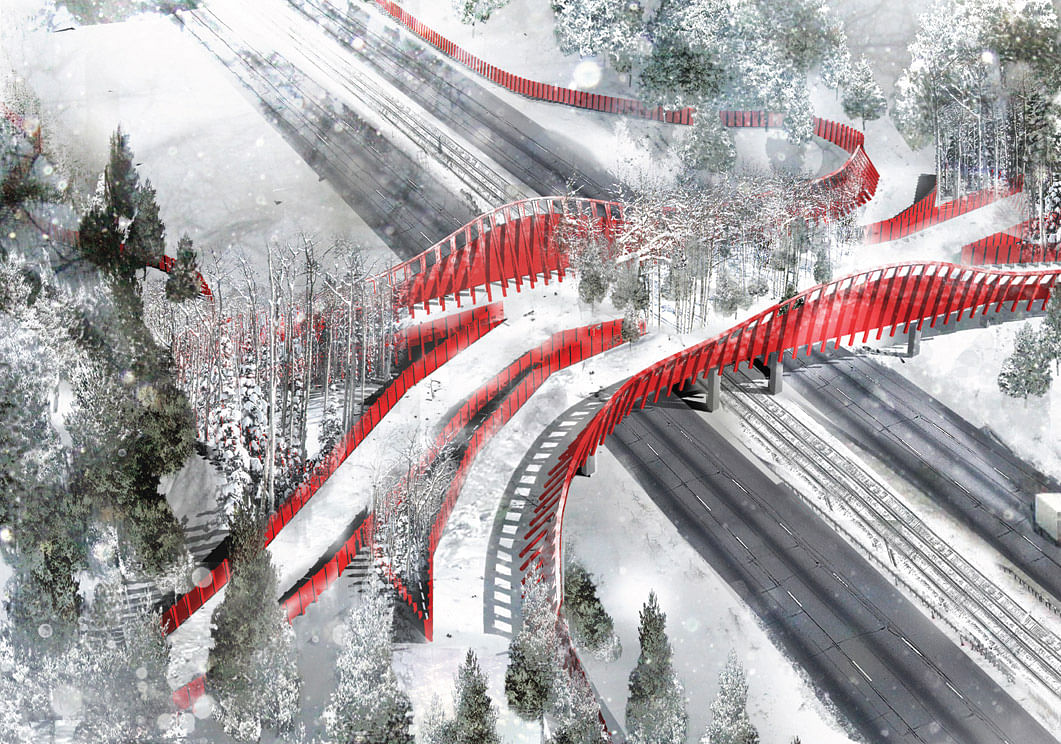
Related
Today, the ARC International Wildlife Crossing Infrastructure Design Competition unveiled its five finalist designs for a next generation wildlife crossing at West Vail Pass, Colorado. The competition is intended to solve the problem of ensuring safe travel for humans and wildlife. Collisions between vehicles and wildlife have increased by 50 percent in the past 15 years threatening human and wildlife safety, and costing Americans $8 billion dollars annually.
The five finalist teams are:
- Janet Rosenberg & Associations (Toronto)
- HNTB Engineering with Michael Van Valkenburgh & Associates (New Yok)
- The Olin Studio (Philadelphia)
- Zwarts & Jansma (Amsterdam)
- Balmori Associates (New York)
View Janet Rosenberg Competition Board (PDF)
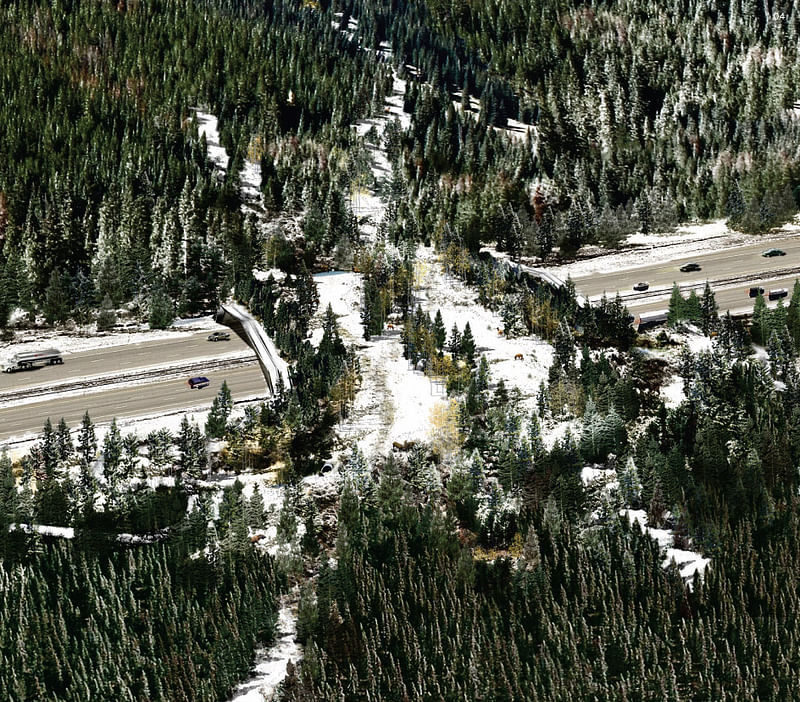
View HNTB/Michael Van Valkenburg Competition Board (PDF)
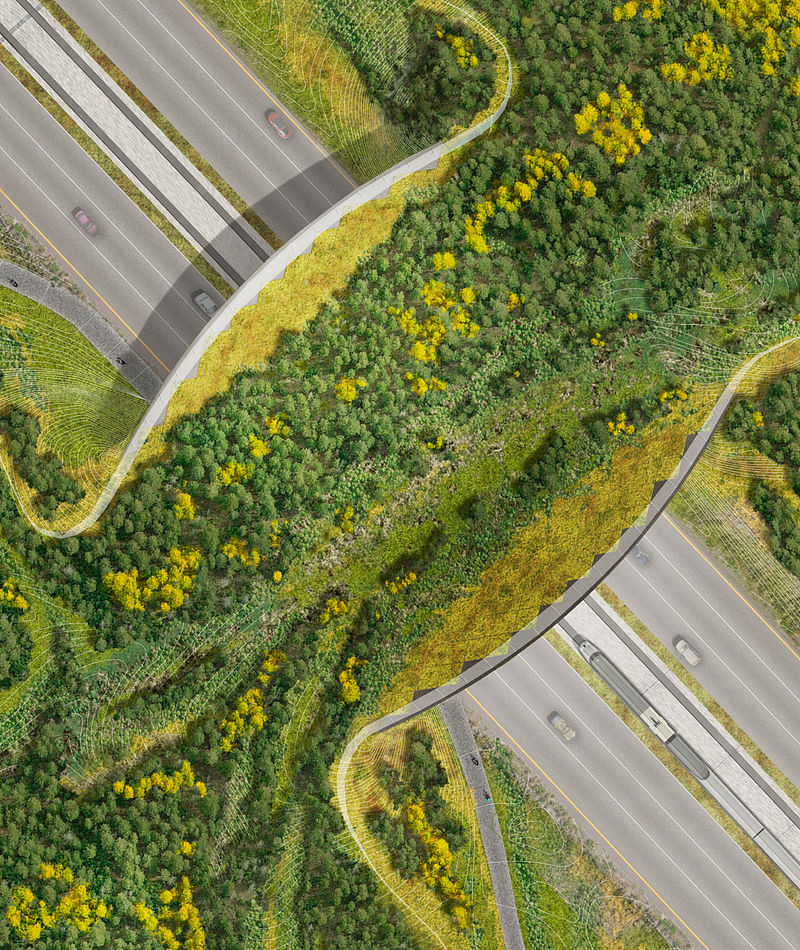
View The Olin Studio Competition Board (PDF)
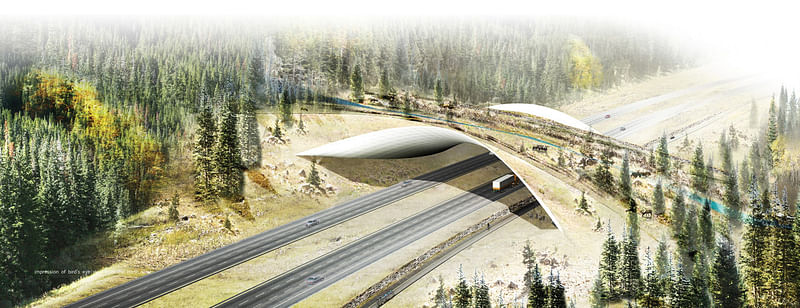
View Zwarts & Jansma Competition Board (PDF)
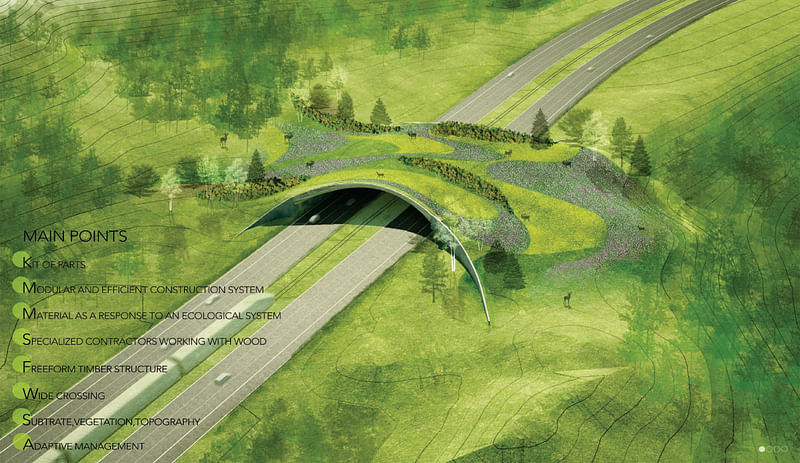
View Balmori Competition Board (PDF)
“Collectively, the designs have the capacity to transform what we think of as possible,” said Jane Wernick, ARC juror and structural engineer, director of Jane Wernick Associates, London.
The five designs are now available for public viewing at the competition's website. The physical models will be on display at the Western Governors’ Wildlife Council meeting in Denver on December 1, 2010. The winning design team will be announced at the Transportation Research Board 90th Annual Meeting in Washington, DC on January 23, 2011.
West Vail Pass was chosen as the location of the wildlife crossing because the I-70 corridor is the major transportation artery of Colorado while at the same time it is a barrier to wildlife movement in the Rocky Mountain region. The ARC competition was focused in situ in Colorado, however the winning design will serve as a model for the world in creating the next generation of wildlife crossings facilitating the movement and protection of wildlife and providing for the free flow of traffic and people. Once completed, Colorado will have a cost-effective solution that will provide safer roads and protect wildlife populations that generate more than $3 billion a year in hunting, fishing and wildlife watching related revenues.
“All five teams responded to the challenge, we now have a thoughtful and robust foundation for the next generation of wildlife crossing structures,” said Jury Chair Charles Waldheim, chair of landscape architecture at Harvard University’s Graduate School of Design.
The jury for the competition is comprised of world-renowned experts in landscape architecture, engineering, transportation and ecology. The finalist teams and the winning design will present a range of innovative design solutions that have the potential to transform the ways in which human infrastructure and animal movement coexist. The jurors are looking not only for sustainable, beautiful, compelling designs that meet the needs of people and wildlife, but also utilize materials that make infrastructure more affordable and, ultimately, roads safer. The five design finalists were chosen from 36 team submissions from nine countries, representing more than 100 firms worldwide.

Share
0 Comments
Comment as :